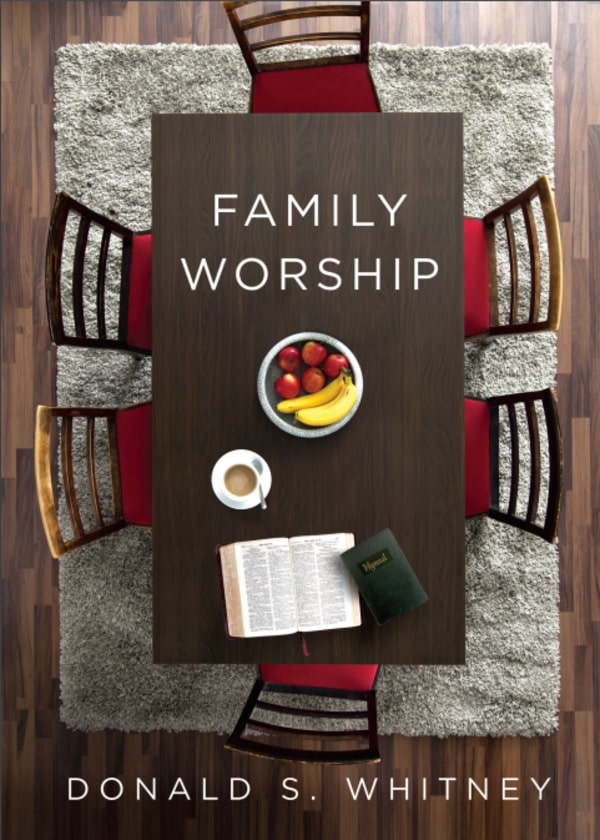I still remember the worst Father’s Day gift my brothers and I ever gave my dad.
We sat on the edge of my parents’ bed that late-1980s Sunday morning with eyes full of excitement as my dad unwrapped his brightly colored Jams shorts and T-shirt emblazoned with a cartoon, surfboarding Tyrannosaurus Rex. To his credit, he acted like he loved this bizarre outfit that no self-respecting 40-year-old man would want to wear in public.
From corny to cliché to cringe-worthy, Father’s Day gifts are notorious for being bad, but good dads see beyond the ugly ties and receive them with joy and gratitude.
But, dads, let me challenge you to turn the tables on your family this year. What if, instead of receiving gifts, you gave your family a gift this year? What if you gathered your family around you and committed to lead them spiritually for the next year through regular family worship?
Deuteronomy 6:5—which Jesus considered the greatest commandment—says, “You shall love the Lord your God with all your heart and with all your soul and with all your might.” What’s interesting is that the verses that follow explain one of the primary ways families love God with all their heart, soul and might:
“… And these words that I command you today shall be on your heart. You shall teach them diligently to your children, and shall talk of them when you sit in your house, and when you walk by the way, and when you lie down, and when you rise. You shall bind them as a sign on your hand, and they shall be as frontlets between your eyes. You shall write them on the doorposts of your house and on your gates.” (Deuteronomy 6:6-9)
These verses are the foundation of a practice known as family worship or family devotions that Christians have participated in for centuries. It’s simply setting aside one or more days per week to read the Bible, talk about it and pray together. And Scripture is clear that the father should take the lead when possible.
If you’re like me, the idea of leading your family to make this a regular pattern is both exciting and scary. Most men, even those who are spiritually mature, can feel inadequate or unprepared for such a task. So many questions/objections come to mind—What do we do? How long should it be? What if I’m not that knowledgeable about the Bible?

For less than $10 and fewer than 75 pages, this is the perfect jumpstart to leading family worship. The book includes a discussion guide that you could read with your wife or another dad, and as an added bonus, you can sign up for a free five-day email course on family worship at crossway.org/FamilyWorship101.
After a short survey of Scripture and church history showing the value of family worship, Whitney dives into the how-tos and what-ifs. One of the things I like about Whitney, which can also be seen in his book Praying the Bible, is that he doesn’t overcomplicate things or give too much “how to.” For example in this book, he says family worship is comprised of reading the Bible, praying, and singing, and can last as little as 10 minutes. Those looking for detailed guidance on nuts and bolts won’t find it in this book, which is probably good. One of the things I’ve learned is that flexibility is key when leading family worship, and Whitney provides enough structure to get you off the runway, but he allows each family to determine the best flight path.
Whitney also answers some “what if” questions, such as “What if the father is not a Christian?” or “What if your children are very young?” or “What if there is a wide range of ages among the kids?” Overall, the book is a quick, helpful read for families of all ages and spiritual maturity levels.
Imagine years from now, sitting with your kids and grandkids talking about Father’s Day, and one by one your children speak of the greatest Father’s Day gift you ever gave them—the spiritual legacy you gave them as you regularly taught them what it looks like to love God with all your heart, soul, and might through family worship.














